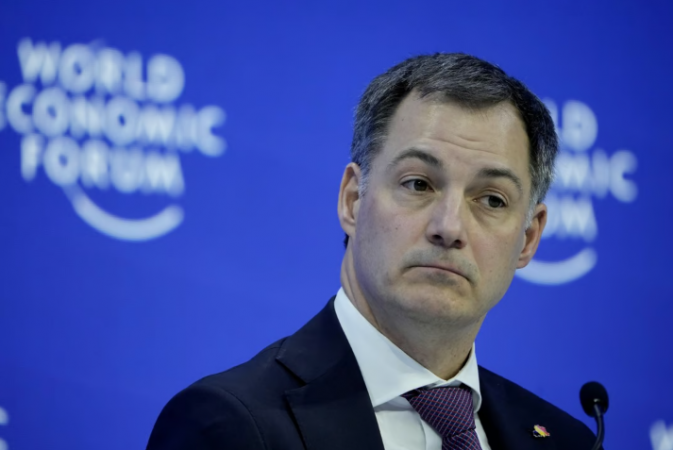
USA: According to panellists at the World Economic Forum's annual meeting in Davos, Switzerland, more frequent and better trade is needed to jump-start a global economy that has been plagued by slowing growth and the lingering effects of the Covid-19 pandemic for the past three years.
Diversifying supply chains and strengthening domestic resilience could also be the answer for nations seeking to strike a balance between the need to cooperate and their own self-interests, panellists said as world and business leaders gathered in the Swiss Alps for five days of events.
More trade means more investment, but it also means better results. And that is the key component," Belgian Prime Minister Alexander De Croo said on Tuesday during a panel discussion on resuming global trade. "It's better trade, investments, and schemes."
Also Read: Report: Saudi Arabia will receive more FDI than the UAE in 2023
Speaking on the same panel, World Trade Organization (WTO) Director General Ngozi Okonjo-Iweala stated that trade could contribute significantly to global growth and advocated for a new form of globalisation, dubbed "reglobalisation" by the intergovernmental organisation.
Take advantage of the opportunities that we see now, as well as the vulnerability of supply chains to when you're building resilience, and use this to bring in those who were on the periphery of global value chains, those countries and those peoples, to decentralise and diversify your supply chains to these areas," she said.
This is yet another way to grow these economies, trade, and the world." The call for a revival in global trade comes at a time when the flow of goods, services, and people has been slowed due to prolonged geopolitical tensions and a years-long coronavirus pandemic, both of which have contributed to headwinds for global economic growth.
Also Read: 2023 will bring a new year and perhaps a new era in US-China relations
The International Monetary Fund predicted last fall that global growth would slow further to 2.7% this year, following a projected slowdown to 3.2% in 2022 from 6% in 2021.
According to a December report by the United Nations Conference on Trade and Development, the outlook for trade this year is increasingly bleak, constrained by ongoing geopolitical tensions, rising interest rates, and higher inflation amid surging energy prices exacerbated by Russia's invasion of Ukraine.
Given the economic factors and a likely return to a subdued long-term growth trend prior to the pandemic, the prospects for trade growth beyond 2023 remain "relatively weak," according to the report.
Speakers on the panel also emphasised the importance of increased cooperation and improved dialogue among nations, whether through bilateral discussions or with the assistance of multilateral organisations such as the World Trade Organization.
According to Laurence D. Fink, chairman and CEO of BlackRock, the world's largest asset manager, the private sector could also play a critical role in boosting global trade and growth as countries roll back fiscal stimulus policies implemented during the pandemic.
Governments should collaborate more closely with private companies to reintroduce private capital to investment, he said, noting that BlackRock's capital flows reached their second-highest level last year.
Global trade has been jeopardised in recent years, owing in part to a trade war between the world's two largest economies, the United States and China, which began in 2018.
In recent months, Washington has escalated its tech war with Beijing, restricting exports of key technological products to China, such as advanced semiconductors.
Following supply chain disruptions during the pandemic and ongoing geopolitical tensions, some panellists stated that the resilience of their home economies and key domestic sectors is becoming increasingly important.
"We need some resilience capacities in critical sectors," said Germany's vice-chancellor and federal minister of economic affairs and climate action, Robert Habeck.
Also Read: Budget 2023: Rationalisation in long-term capital gains tax on the anvil
"It would be imprudent to respond in this complicated political world... We require some knowledge and capabilities in all critical areas," including digitalization, raw materials, and semiconductors.